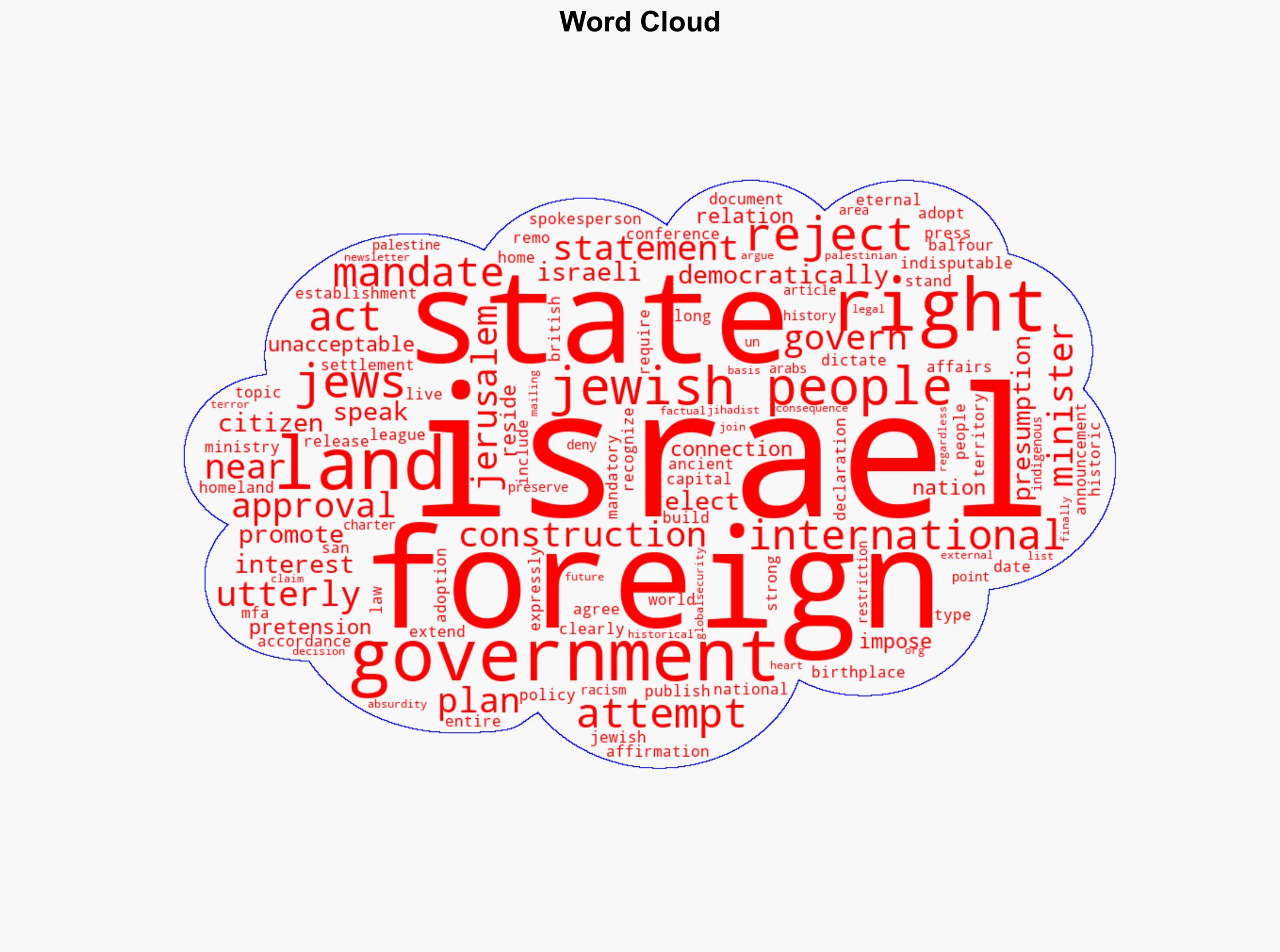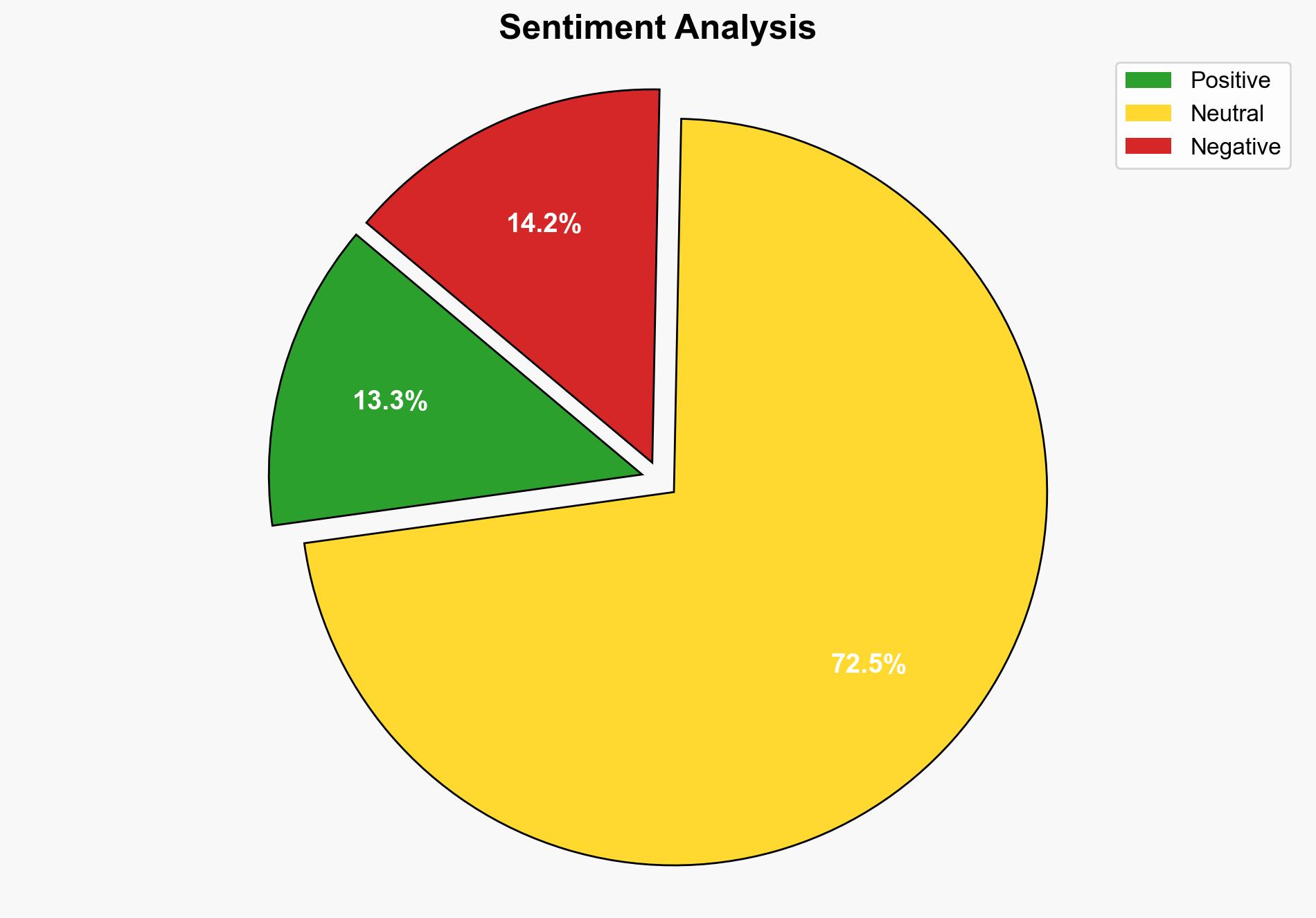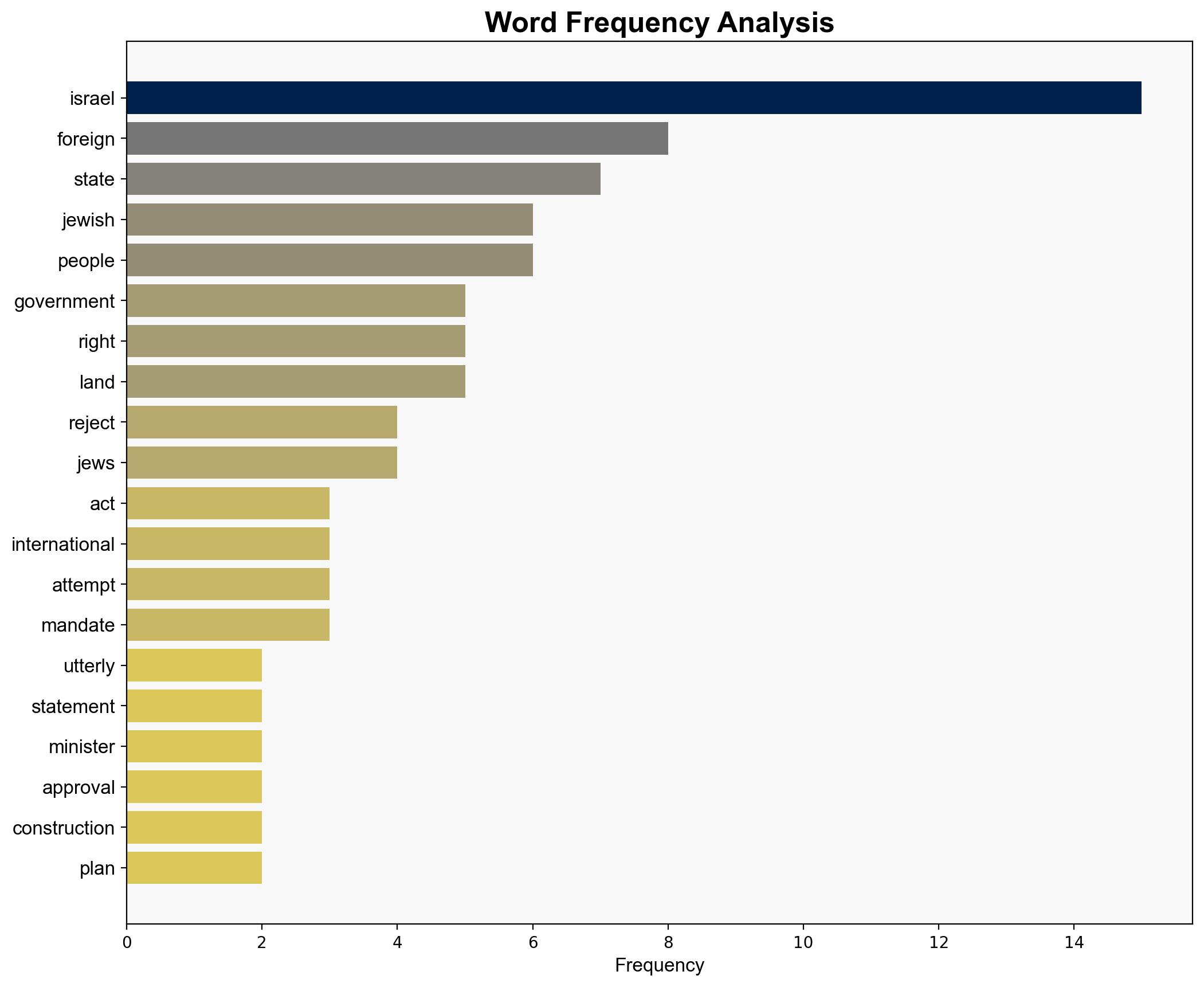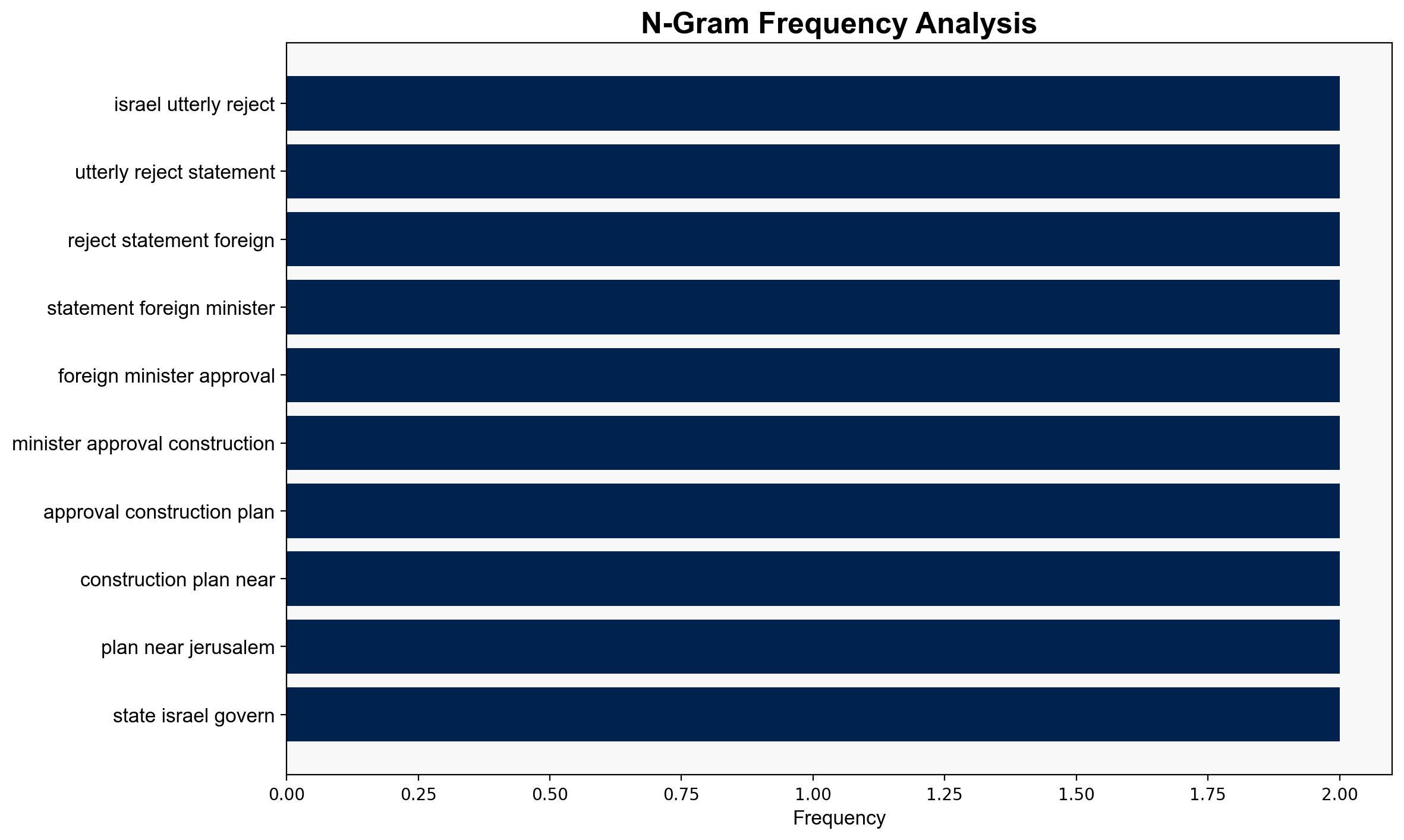Israel utterly rejects the statement of the foreign ministers regarding the approval of a construction plan near Jerusalem – Globalsecurity.org
Published on: 2025-08-23
Intelligence Report: Israel utterly rejects the statement of the foreign ministers regarding the approval of a construction plan near Jerusalem – Globalsecurity.org
1. BLUF (Bottom Line Up Front)
The most supported hypothesis is that Israel’s rejection of the foreign ministers’ statement is a strategic assertion of sovereignty and national rights, with a high confidence level. The recommended action is to monitor regional diplomatic responses and potential shifts in international alliances.
2. Competing Hypotheses
1. **Hypothesis A**: Israel’s rejection is primarily a domestic political maneuver aimed at consolidating internal support by emphasizing national sovereignty and historical rights.
2. **Hypothesis B**: The rejection is a strategic international stance to deter external influence and maintain control over contested areas, signaling a broader geopolitical strategy.
Using ACH 2.0, Hypothesis B is better supported due to the emphasis on international law and historical rights, suggesting a focus on external relations rather than purely domestic politics.
3. Key Assumptions and Red Flags
– **Assumptions**: Israel’s government believes that asserting historical rights will deter international pressure. The international community’s response will be limited to diplomatic statements.
– **Red Flags**: Potential underestimation of international backlash or shifts in foreign policy by key allies. Lack of consideration for internal dissent or opposition within Israel.
4. Implications and Strategic Risks
– **Geopolitical**: Increased tension with foreign governments could lead to diplomatic isolation or economic sanctions.
– **Economic**: Potential impact on foreign investment and economic partnerships if international relations deteriorate.
– **Security**: Heightened risk of regional conflict escalation, particularly with Palestinian groups or neighboring states.
5. Recommendations and Outlook
- Engage in diplomatic dialogues with key international stakeholders to mitigate potential backlash.
- Prepare for scenario-based outcomes:
- **Best Case**: Successful diplomatic engagement leads to a balanced resolution.
- **Worst Case**: Escalation into broader regional conflict and economic sanctions.
- **Most Likely**: Continued diplomatic tensions with sporadic international criticism.
6. Key Individuals and Entities
– Israeli Ministry of Foreign Affairs
– Foreign ministers of the involved countries
7. Thematic Tags
national security threats, regional focus, geopolitical strategy, international law




